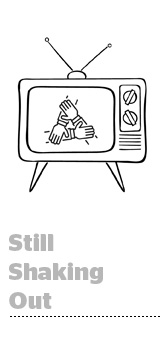
WarnerMedia’s farewell to the OpenAP Consortium Friday was inevitable.
The writing has been on the wall since February, when AT&T’s $85 billion acquisition of Time Warner was finalized.
“It makes sense to pull out now [that] they’re owned by a company that has one of the largest data sets available,” said Tracey Scheppach, CEO and co-founder of advanced TV and video consultancy Matter More Media. “It’s actually only natural.”
The question now is what WarnerMedia’s departure means for the consortium’s future. Is the TV industry capable of creating open standards for addressable advertising?
Without standardization and industry collaboration, data-driven TV advertising won’t move beyond the experimental phase, said Jamie Power, COO of Cadent.
“Everything becomes a test because it is almost impossible to understand and compare performance against KPI and supplier – this is not a sustainable, scalable way to run a campaign,” Power said. “If we continue to close off the marketplace, it will not live up to its full potential.”
Losing WarnerMedia definitely puts in a hitch in the consortium’s step and speaks to the game of chess currently playing out in the TV ecosystem between habitual rivals, each of which wants to be in charge of its own destiny. There’s even a whiff of “Game of Thrones” in the maneuvers, Scheppach said.
“Everyone is changing sides and alliances, because winter is coming, and as the game evolves, you change your strategy,” she said. “This is what I see happening here: The game has evolved for WarnerMedia, because they’re owned by AT&T, a premier distributor with the most advanced platform.”
At the same time, WarnerMedia’s exit stage-left doesn’t necessarily spell the end of OpenAP, which still includes founding members Fox and Viacom, as well as NBCU, which joined the group last year. The remaining three programmers are pledging to soldier on and even make a few new announcements in the near term.
Although shared product isn’t in the cards, at least as far as WarnerMedia and Xandr are concerned, there’s no reason to say that OpenAP didn’t achieve something during the two-plus years WarnerMedia was on board.
When Matter More sends RFPs to Viacom, Fox, NBCU or WarnerMedia for linear media plans on behalf of clients, the proposals all come back looking similar, and “I’d call that a win, actually,” Scheppach said.
“My hope is that they did already start to create some standardization,” she said. “The leaders of the TV industry know we need to be frenemies, because we’re at a tipping point. TV advertising will always be a scale game, and now that it’s becoming a more complicated, data-driven one, we need to have standards and to make them consistent across inventory sources.”
But even if OpenAP does start to crumble – it’s unclear what Fox might do now that it’s owned by Disney – there are also other advanced TV outfits with the same raison d’être as OpenAP pushing for industry standards. There’s Project OAR, for example, a consortium that launched in March with NBCU, Disney, Discovery, AMC Networks, Turner, Xandr, FreeWheel, Hearst TV and Vizio’s Inscape.
The only imperative for all of these group efforts, though, is to ensure that they’re simplifying the industry, rather than layering in more complexity.
“As companies change ownership and new consortiums pop up, it gets more and more complex for the marketer,” Power said. “Networks, MVPDs, TV manufacturers and data partners all need to come together to simplify this process.”
This post was syndicated from Ad Exchanger.


More Stories
Marketing Morsels: Hidden Valley Ranch, La-Z-Boy, Topps & More
Flashback: Jane Pauley and Deborah Norville Revisit Today’s 1989 Succession Drama
Ally Financial Revives ‘Banksgiving’ With A TikTok Twist